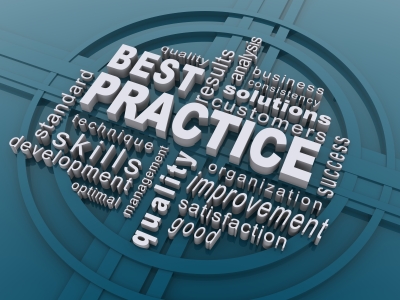Yeah, I know, I know. Many readers will react to this title with responses like, “Isn’t Sales Competence an oxymoron? Isn’t that something like Military Intelligence?” But if we want to maximize sales performance across our organizations, it’s critical that we have a model that identifies critical competencies for the sales organization. Without this, we have no framework for performance management, coaching, development or continuous improvement.
In the absence of a sales competence framework or model, often we evaluate and track the wrong things. Too often, we track things like quota performance. But that doesn’t necessarily tell you whether the sales person is good or has the capabilities to sustain quota performance. And we all know quota performance is a trailing metric, so by the time we see that a person is lacking key competencies, it’s too late to have an impact. Or without some sort of framework, we can be recruiting the wrong people. The total costs (out of pocket and opportunity costs) of a bad hire can be millions! In the absence of a strong framework, our recruiting, coaching and development are driven by gut instinct. It’s impossible to drive and sustain the highest levels of performance on gut instinct.
So why do we need a Sales Competence Model/Framework?
A competence model provides a framework for what sales people have to know and how they have to perform to achieve their and the organizational goals. Having a model in place helps in a range of areas: It helps you identify the behaviors, attitudes, experience, and skills necessary for success through a sales person’s career. For example we can describe certain minimum or target competencies in recruiting new sales people. We can extend that to define “exit” criteria after on boarding or initial training programs.
As we look to develop people in their jobs and performance, a model provides us a framework, in addition watching what they actually do on a day to day basis, to coach and develop sales professionals over their career. For example, as we look at career pathing, or moving between job levels (think Associate Sales Person, Sales Person, Senior Sales Person, Sales Leader), the competency model provides a framework for coaching and developing people through their careers.
As sales roles become increasingly complex, with differing roles in the organization–account managers, territory managers, product specialists, pre-sales specialist, business development executives, and so forth, a sales competence framework helps identify different skill and capability levels for each role.
Without a framework like a sales competence model, it’s virtually impossible to develop strong training, development, on boarding, and coaching programs.
So now that we know why it’s important, what is a Sales Competence Model/Framework?
The sales competency model typically describes the skills and capabilities required for sales performance excellence. Lots of people offer all sorts of different models (usually optimized to the services they are selling to you). Frankly, I think the best starting point is ASTD’s World Class Sales Competency Model. It’s a great and comprehensive start to developing this framework. I generally like to expand it with behaviors, attitudes, as well as other competencies, capabilities and skills specific to the organization, it’s customers, how they buy, etc.
As an example, in a model we developed for a client recently we identified over 150 competencies in categories like: behaviors, attitudes, industry and market knowledge, customer knowledge, knowledge of [My Client’s] products and solutions, knowledge/ability of how to get things done within their customers, knowledge/ability of how to get things done within their own company, general business knowledge, technical knowledge/acumen, design engineering/manufacturing process/supply chain/quality management knowledge, ability to offer insight to customers (bring new ideas, identify opportunities, etc.), knowledge and ability to create value, understanding and ability to execute “Design Win” selling strategies, approach to time/territory management, ability to employ strategic selling approaches, sales process capability and execution, professionalism, relationship management, and a whole variety of selling skills.
You can see it can get quite comprehensive, but make it as simple or comprehensive as serves your purposes. Over time build on it, adding new competencies as you understand the performance drivers in your organization.
The second thing you do, is develop a rating scale for each competency, so you have a framework of understanding which are most important. These ratings may vary based on job responsibility, whether you are using it to screen candidates, whether you are assessing capability after on boarding, or when you are looking to move an experienced person to the next level of performance. The rating scale can be a simple as 1-No knowledge required to 5-Completely masters the skill and is able to coach and mentor others in the skill.
Sounds like a lot of work? Well yes, in a way, but if you don’t have a framework, how do you have a basis for understanding and driving the performance of each person on your team and the overall organization. In reality, it doesn’t take a whole lot of time, particularly if you aren’t looking for perfection in the first iteration. If you want some information and a free “starter kit,” just email me at dabrock@excellenc.com.
Systematically understanding the competencies and capabilities required for success is critical to maximizing the performance of the individuals and overall organization. A Sales Competence Model/Framework is a great starting point.
Do you have one?

David I find your comments quite refreshing. I’ve always focused on the behavioral, motivational, and strength-based talents side of performance and see the merit and benefit in your approach. I’d appreciate your review of an article I posted recently on Tweak Your Biz, http://bit.ly/13MELUQ, and get your feedback. Given your expertise I hope to benefit. Thanks in advance.
Thanks for the comment. Your articles was great!